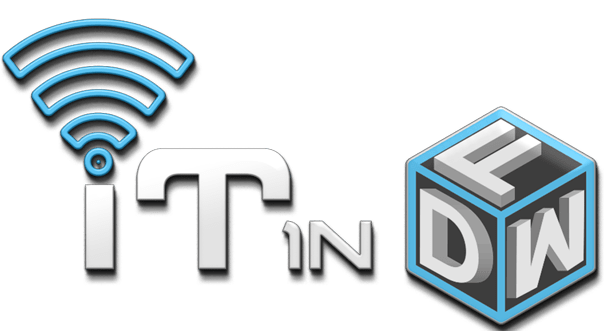Building Blocks of Success: 7 Must-Have IT Components for Small Businesses
IT plays an indispensable role in streamlining operations, improving efficiency, and fostering growth. However, the real challenge lies in identifying which IT components are truly essential for your business. From software selection to hardware investment, the decisions can be overwhelming. But don’t worry, this post will guide you through the five must-have IT components for small businesses, making the process easier. These components, often managed by proficient IT services, are vital in establishing a robust and effective IT infrastructure for your business.
The 7 Must-Have IT Components for Small Businesses
Component 1: Reliable Internet Connectivity
Connectivity is at the heart of IT infrastructure and the internet is the main driver of connectivity. A high-speed internet connection is a necessity to support real-time communication, access to cloud services, online dealing, etc. Having a dependable internet connection is the first important component to fuel a small business’s IT requirement.
Component 2: Hardware (Computers, Servers, Printers)
The role of hardware in business operations is fundamental. Computers serve as the primary tool for tasks ranging from simple data entry to complex project management. Servers handle data storage and network management, ensuring smooth communication and collaboration. Printers, though might seem old-fashioned, are still necessary for printing invoices, labels, and important documents. Choosing the right hardware involves considering factors like business needs, budget, and scalability. Regular maintenance is also critical to ensure that your hardware remains in top-notch condition and continues to serve your business effectively.
Component 3: Optic Fiber Connectivity
In our digitally-driven era, reliable, high-speed internet is not just an advantage—it’s a necessity. Optic fiber connectivity has become the gold standard in this realm, outpacing traditional copper lines with its superior speed, reduced latency, and enhanced reliability. These qualities make it indispensable for businesses relying on real-time data transfer, cloud computing, and video conferencing. When selecting a provider, consider the coverage area, customer service, and whether they meet your business’s unique needs. Engaging with a knowledgeable IT service provider can guide this process.
Component 4: Security Cameras
Safeguarding of small businesses includes physical security which helps to protect physical assets. They not only deter crime but also record vital evidence in case of incidents, providing a sense of safety for employees and customers alike. Factors to consider when choosing security cameras include image quality, coverage area, storage, and retrieval of footage, as well as the need for indoor or outdoor cameras. Regular checks and maintenance of these cameras ensure their effective operation.
Component 5: Software (Productivity, Security, Collaboration tools)
Software forms the bedrock of many business operations. Productivity software, like Office Suites, allows employees to create and share documents, spreadsheets, and presentations efficiently. Security software offers vital protection for your business data, while collaboration tools streamline team communication and productivity. Selecting the right software entails understanding your business needs, budget, and the size of your team. Regular software updates also ensure that your business benefits from the latest features and security upgrades.
Component 6: Data Storage and Backup Solutions
Data is the lifeblood of a business, and as such, dependable data storage and backup solutions are a must. These solutions safeguard your data from loss resulting from accidents, hardware failures, or cyber threats while ensuring business continuity through swift data recovery when needed. Your choice should offer ample storage space, and security features, and align with your budget. Remember, the repercussions of losing critical data can greatly exceed the investment in a robust data storage and backup solution.
Component 7: Cybersecurity Measures
In light of the rising tide of cyber threats, robust cybersecurity measures are a non-negotiable part of business operations. A business has to invest in cyber security measures like firewalls, antivirus, encryption, and two-factor authentication. It will help to protect the business data and protect sensitive information of clients.
The Importance of Regular IT Maintenance and Upgrades
Regular maintenance and upgrades of your IT infrastructure are critical for a multitude of reasons. Maintenance ensures optimal functionality of your IT components and reduces the risk of downtime due to failures. On the other hand, upgrades ensure your business stays on the cutting edge of technology advancements. Consistent checks, prompt repairs, and leveraging the expertise of an IT service provider can facilitate the process of maintaining and upgrading your IT infrastructure.
Closing Thoughts
In a competitive marketing environment, it is important for small businesses to invest in IT components. A solid IT infrastructure is an essential component where all businesses must invest. Optic fiber connectivity, security cameras, diverse software, data storage and backup solutions, cybersecurity measures, and the regular maintenance and upgrades of these components, all constitute the building blocks for a successful small business. By leveraging the expertise of a competent IT service provider, small businesses can navigate the IT landscape more efficiently, secure their operations, and pave the way for sustained growth. It’s an investment that pays substantial dividends in the long run.

CORPORATE OFFICE
1509 W Hebron Parkway
Suite Number 150
Carrollton, TX 75010
 May 24, 2023
May 24, 2023